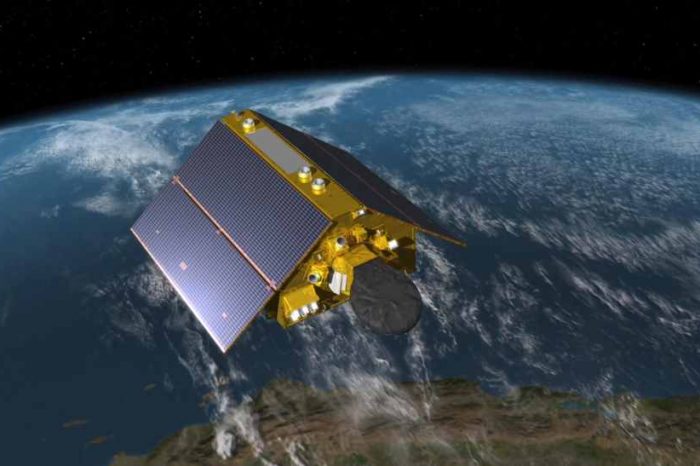Bill Gates warns of “climatedemic,” another global crisis that could be worse than the COVID-19. Estimated that 3 million people could die if climate change is not stopped

Bill Gates is well-known in the United States as the co-founder of Microsoft and one-time, the world’s richest man. However, Gates is known around the world for his philanthropic works in Africa, Asia, and South America. Since he retired from Microsoft as Chairman and CEO, Gates has committed his fortune to improve the lives and health of people in Sub-Saharan Africa. He has spent billions of dollars to combat the spread of malaria in Africa.
In addition to improving the lives of millions of people, Gates also works with many environmental organizations to address the risk of climate change and move the world beyond fossil fuels to mitigate climate change. Since he left Microsoft, Gates has been sharing his views on his new blog site, Gates Notes, where he shares his views on climate change, vaccines, and helping people in third world countries.
Since January of this year, the world’s attention has shifted away from all other global issues to finding a cure for the deadly coronavirus. COVID-19 is a new global crisis that has shocked the entire world. The virus has caused a tragic number of deaths with people afraid to leave their homes. Its effects are rippling across the world. As of writing, at least 1,369,049 people have died so far from the coronavirus COVID-19 outbreak.
However, Gates warned that “if we think COVID-19 is awful, climate change could be worse.” In his blog post, Gates estimated that 3 million people could die by 2100 if climate change is not stopped, adding that “climate change is an even harder problem than the coronavirus pandemic.”
Gates went on to say that coronavirus pandemic’s ‘misery’ will ‘happen regularly’ if we don’t take action on climate change. In that same blog, Gates warns of another looming crisis that could be worse than the coronavirus. In fact, Gates has been very consistent with his views on climate change. In the 2010 TED talk show, Gates expressed his concerns about the danger of climate change and the consequence of lack of action from the government, people, and institutions around the world.
During the 2010 TED talk presentation, Gates shared a mathematical formula that he believes could one day solve the climate change problem we are facing. CO2 (carbon dioxide output) = P x S x E x C (= People x Services per Person x Energy per Service x CO2 per unit of Energy). You can read the story here.
Unlike his 2010 presentation, Gates uses the ongoing coronavirus pandemic to warn us about what could happen if we don’t address the climate change problem and reduce CO2 emissions.
“As awful as this pandemic is, climate change could be worse,” he wrote. “If you want to understand the kind of damage that climate change will inflict, look at COVID-19 and spread the pain out over a much longer period of time. The loss of life and economic misery caused by this pandemic are on par with what will happen regularly if we do not eliminate the world’s carbon emissions.:
Here is how Gates describes our current sense of complacency about climate change.
I realize that it’s hard to think about a problem like climate change right now. When disaster strikes, it is human nature to worry only about meeting our most immediate needs, especially when the disaster is as bad as COVID-19. But the fact that dramatically higher temperatures seem far off in the future does not make them any less of a problem—and the only way to avoid the worst possible climate outcomes is to accelerate our efforts now. Even as the world works to stop the novel coronavirus and begin recovering from it, we also need to act now to avoid a climate disaster by building and deploying innovations that will let us eliminate our greenhouse gas emissions.”
Gates went on to paint a picture of how a lack of action on climate change could become catastrophic.
“Let’s look first at the loss of life. How many people will be killed by COVID-19 versus climate change? Because we want to compare events that happen at different points in time—the pandemic in 2020 and climate change in, say, 2060—and the global population will change in that time, we can’t compare the absolute numbers of deaths. Instead, we will use the death rate: that is, the number of deaths per 100,000 people,” Gates explained.
Gates then used the 100,000 deaths to project what could happen in the year 2060 and 2100.
As of last week, more than 600,000 people are known to have died from COVID-19 worldwide. On an annualized basis, that is a death rate of 14 per 100,000 people.
How does that compare to climate change? Within the next 40 years, increases in global temperatures are projected to raise global mortality rates by the same amount—14 deaths per 100,000. By the end of the century, if emissions growth stays high, climate change could be responsible for 73 extra deaths per 100,000 people. In a lower emissions scenario, the death rate drops to 10 per 100,000.
Considering that at least 600,000 have died from the ongoing coronavirus worldwide, Gates projects that the deaths from climate change, if nothing is done to stop it, could reach as high as the current global deaths from coronavirus times five.
In other words, by 2060, climate change could be just as deadly as COVID-19, and by 2100 it could be five times as deadly. It is not all gloom and doom. In the end, Gates suggests that reducing CO2 emissions could prevent this disaster from opening. Gates concluded his blog post calling for drastic change and noted that flying or driving less wasn’t going to cut it.
“So just as we need new tests, treatments, and vaccines for the novel coronavirus, we need new tools for fighting climate change: zero-carbon ways to produce electricity, make things, grow food, keep our buildings cool and warm, and move people and goods around the world,” he said.
You can read the rest of his blog here.




